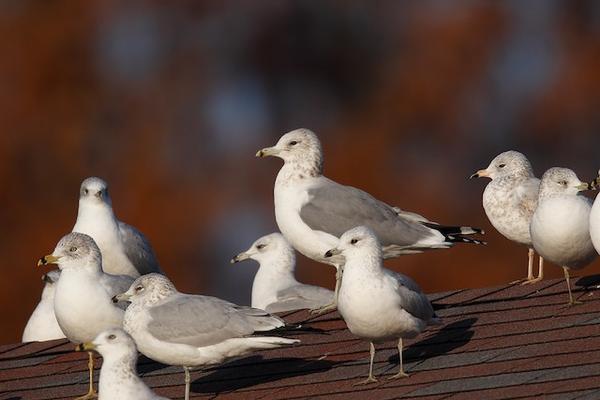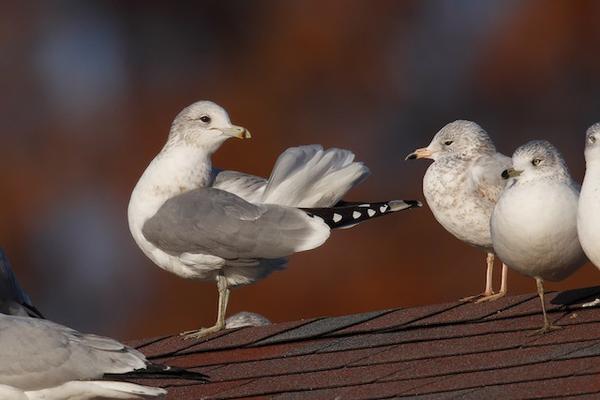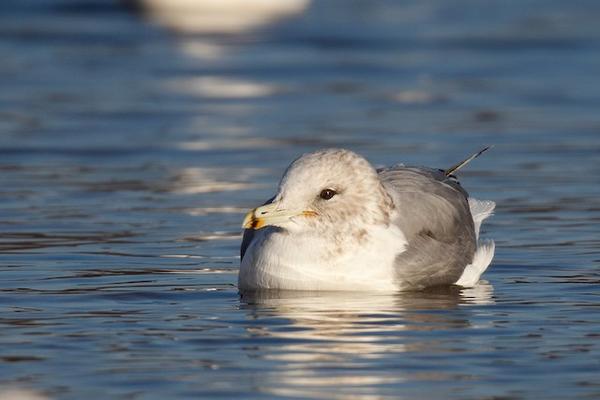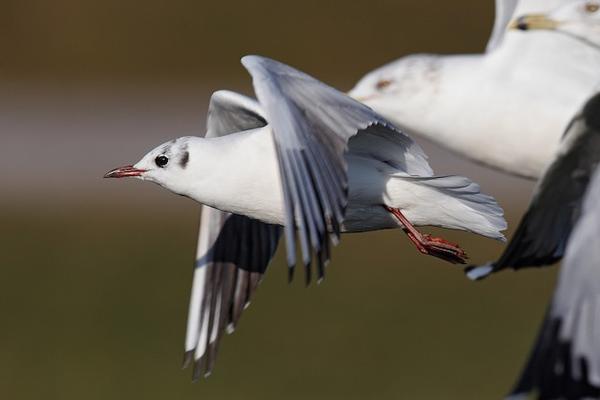
“One of these things is not like the others. One of these things doesn’t belong.”
This little chant from Sesame Street is a reminder that large flocks of ring-billed gulls can contain one or two rare birds. You just have to look for them.
On Sunday afternoon December 3, Geoff Malosh was taking photographs of a black-headed gull (Rare Bird #1) among a flock of 500 ring-billed gulls at Moraine State Park. When he looked at the birds on a nearby roof he found a California gull among them. Rare Bird #2!
As the name implies, California gulls (Larus californicus) are common in California but not here. They breed from Great Slave Lake in Canada to the Great Plains and the Great Basin, and spend the winter on the West Coast, especially in California. They rarely travel east of the Mississippi so this bird is a great find for Butler County, Pennsylvania.
How did Geoff know the bird was a California gull? His eBird description has all the details. Here’s a quick summary:
The California gull has a dark iris (ring-billed adults have yellow eyes), a red-orange spot on its lower mandible behind the black ring (missing on ring-billed), and is slightly larger and darker than the ring-billed gulls.

The eye and bill colors are diagnostic. Here’s a closer look.

If Geoff hadn’t traveled to see Rare Bird #1 he wouldn’t have found Rare Bird #2.
Here’s the black-headed gull that sparked Geoff’s trip, beautiful in its own right.

Would I have identified the California gull if I’d been birding alone? I wish my answer was “yes,” but I forget to look closely at gulls. I probably would have called this one a lesser black-backed gull and stopped looking.
“One of these things is not like the others. One of these things doesn’t belong.”
When it comes to gulls you have to look for needles in the haystack.
(photos by Geoff Malosh)
Wow! Thanks for sharing. Might have to take a ride to Moraine.
Glad he knew the difference. Will those 2 birds survive our winter?
Judith, they are very hardy. And they will naturally avoid severe weather because they’ll leave the area when the lake freezes.